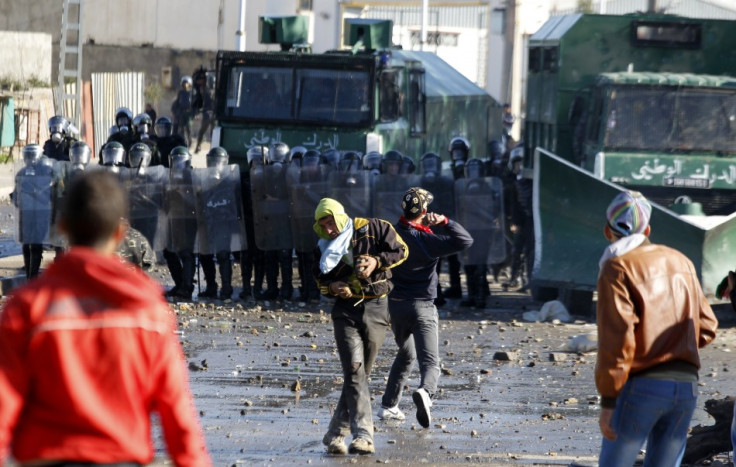Self –Immolations and Violent Clashes: Is Algeria the Next Tunisia?

At least 30 people were injured in clashes in Tiret, Algeria, after the funeral of a man who set himself on fire, prompting speculation the country could be following in the footstep of Tunisia.
Violence started after the funeral of Hichem Garem. More clashes were also reported in the nearby towns of Sougueur and Rahaouiya, where groups of protesters set up road blocks and battled with security forces.
Gacem, a young street vendor, set himself ablaze on January 26, following an altercation with a policeman who had kicked over his stall, according to reports.
He was taken to hospital in Oran but later died from his wounds.
Algeria, the next Tunisia?
Despite intermittent waves of protests, the Algerian government, headed by Abdelaziz Bouteflika, has remained firmly in power.
However in recent months, self-immolations have become increasingly frequent, with dozens of cases reported.
In neighbouring Tunisia, the uprising that led to the overthrow of long-time president Zine El Abidine Ben Ali, was prompted by the self-immolation of a young fruit and vegetable seller Mohamed Bouazizi.
Algerians complain about their poor living standard and the widespread corruption imbedded in the country's public sector. Many say their complaints are left unanswered and the housing crisis shows no sign of improving.
So is Algeria about to follow on the footsteps of Tunisia and other 'Arab Spring' countries?
Various popular uprisings have in the past challenged poor government policies and brutal crackdowns.
In 1988 massive strikes and demonstrations, were repressed by the then Bendjedid regime, leading to 500 deaths and 3,500 detentions.
Then in 1991, the FIS, an Islamist party whose popularity had been on the increase, won the first round of the national elections.
The army intervened before the second round could take place, deposed Bendjedid and took control of the government. As tensions rose between the military and the Islamist armed groups, the country became engulfed in a violent a decade-long civil war that killed 200,000 people.The brutality was extreme. While the massacres that targeted enitre villages were blamed on Islamists groups, reports from international rights groups showed in many cases the security forces did little to prevent them from taking place.
Abdelaziz Bouteflika is now in power and though the military is not as powerful as it used to be 20 years ago, many generals are still in high places, including in the government.
The horrors of the civil war are still very fresh in the Algerian psyche and with al-Qaeda in the Islamic Maghreb still operating in the region in addition to the country's internal Islamist groups, pushing for an overthrow of the regime still sounds like a very risky option for many Algerians.
© Copyright IBTimes 2025. All rights reserved.




















